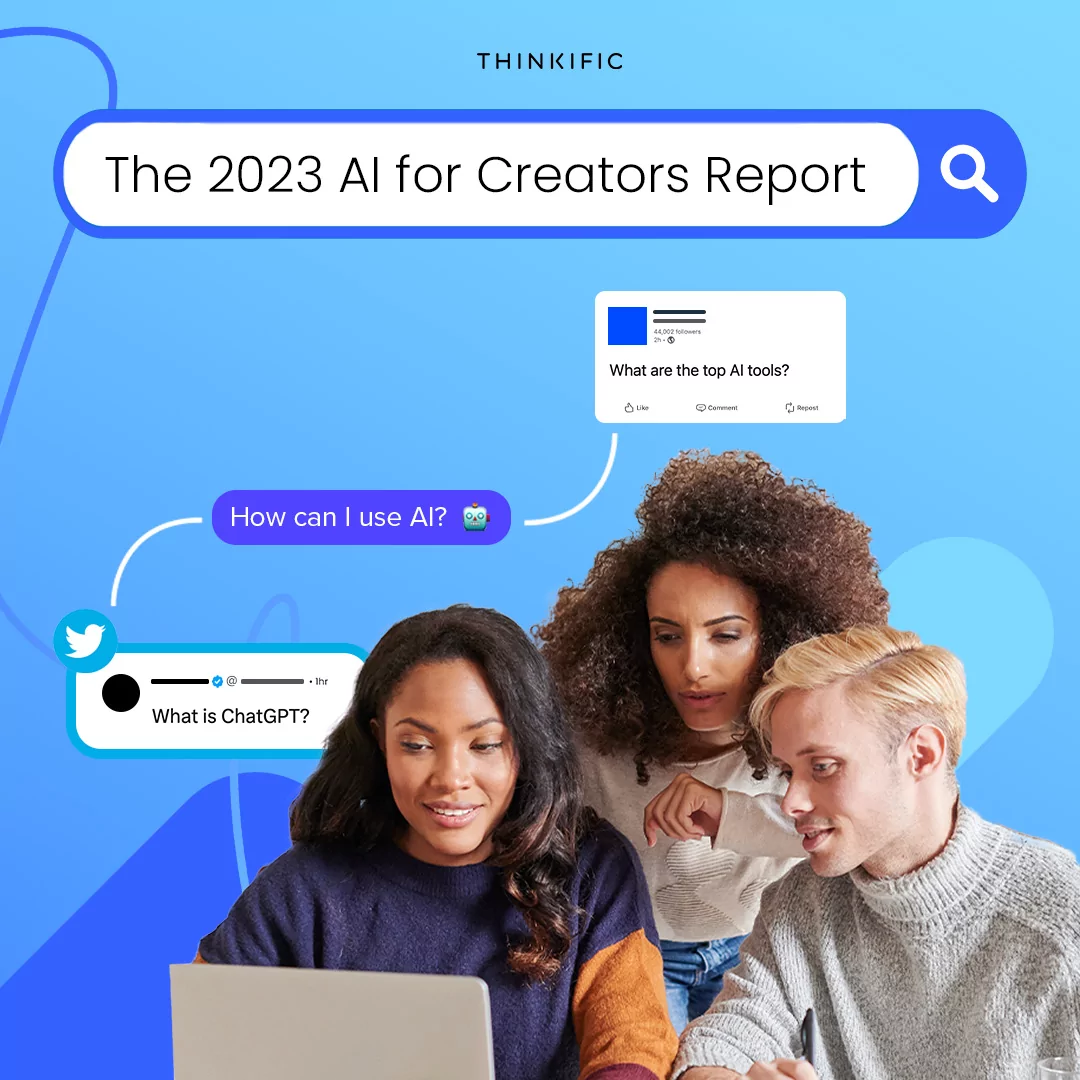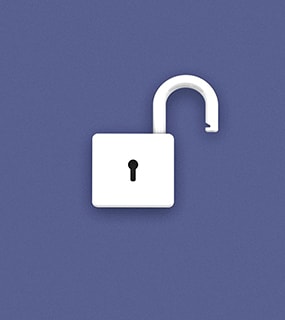If you want to sell an online course, you’re going to need an audience. And ideally, you don’t wait until after you’ve created your course to start building that audience. If there’s one thing I’ve learned from my experience as an entrepreneur – building a product and then going and finding the community to promote it to is like putting the cart before the horse. A better approach is to build a community first, find out exactly what they want, and then sell them that.
Creating a Facebook Group is a great way to build an audience for your online course. Better yet though, it can help you build a community of leads and customers who will give you a window into what they want, need, and will buy. In a Facebook Group you can watch posts and tap into your audience’s desires, language, and gaps where they aren’t being served – and then you can offer them exactly what they want, with less effort than trying to figure it out on your own.
In this article, I will teach you how to build a community using a Facebook Group, tap into that group for what they want, and sell them your online course before you even create it.
A fatal mistake to avoid
In my years of doing consulting and online course launches, I’ve seen one fatal mistake that I’d like to help you avoid. That mistake is launching a course before you have a community.
Maybe you’ve seen this happen, or worse yet, you’ve experienced it yourself. You spend countless hours building your course. You’re psyched to serve and sell, and you labor over your online course with incredible enthusiasm – only to release that course to the public and…
… crickets.
Nobody buys.
It’s sad, I know. And unfortunately it happens more than most course creators want to admit.
Instead of laboring to create an online course that may or may not sell, I recommend you put that focus into building your community first. When you become the leader of a community, you’ll find it’s very easy to sell and make money from courses, coaching, and whatever else you want to offer.
When I first started building my business, I struggled to find a solid way to build a community around it. Fortunately, I put my focus more on my Facebook group than just about anything else, including email marketing and podcasting. As I look back on what helped me sell my online course with incredible force – it was definitely my Facebook community. That group became a strong lead for contacts, networking, socializing, and tapping into what an already-built audience wanted.
Build A Community Around Your Course Topic
If you want to sell your online course to members of your Facebook Group, you first need to build a group that is highly relevant to your course topic and niche.
In my case, I’ve built several groups, one of the most profitable ones for me has been my Podcasters Secret Weapon group along with my Paid2Podcast group (the latter being a paid group). Having a group for podcasters has allowed me to sell to people in the podcasting niche.
Had I built groups dedicated to fasting, dieting, weightlifting or something else unrelated to my niche – I’d have a community of people that wouldn’t be interested in my online courses about podcasting.
So, if you haven’t already, I recommend you log into Facebook and create a new Facebook Group. Once you do this, you’ll be asked to come up with a title for your group, which brings us to my next suggestion:
Name Your Facebook Group For SEO
When many people create a group, they try to create catchy titles. On Facebook that doesn’t work so well. If you think of Facebook like a search engine, then you’ll know that it’s not super savvy in crawling for details – instead it uses more literal phrases.
For example, if you named your group “Fantastic Beasts” and your group is for gym enthusiasts, Facebook doesn’t know that. Instead, name your group, “The Weight Room” or “Gym Enthusiasts – Who Want To Get Ripped.” Use the keywords people are likely to use when searching for your topic in your group name.
If your group is for digital marketers or Instagrams users – put those keywords at the start of your group title. The only time you’d do well to get fancy with titles is when you’ve already got a strong following and can direct a good flow of fans into your group. If you have a well-establish personal brand and a large audience (like Lewis Howes or Hal Elrod, for example), then you’d do well to use your name in the title. But if you don’t have a lot of fans who will likely search for your name in Facebook or who you can send to your group via ads, email, your podcast and other mediums – use the keywords that reflect your course topic in your group name.
Have A Clear Focus For Your Facebook Group
Akin to my first tip about creating a group that is niche-specific and relevant to your target audience for your online course, your group also needs to have a purpose.
The purpose for your group cannot be to just to sell stuff (including online courses) to its members. Sure, you’ll be using the group to generate leads for your online course business, get clients, and sell more courses, – but don’t position it that way.
A great example of a community with strong purpose is The Order Of Man Facebook Group. With over forty thousand highly active members and climbing, Ryan Michler’s group has become an online community unlike most groups online. Many posts in that group range from fifty comments and more typically in the hundreds. The clear focus helps men gather, talk about a clear topic: being a man and how to improve as a man.
When you create a Facebook Group to build a community for your audience, make sure your group has a clear focus. If you’ve noticed by now, all the groups I’ve mentioned are highly focused and have a strong intention. Having this strong focus will also help you later when you decide to sell your course to your community.
Ask People To Join Your Facebook Group
Building your community is hard work. When you don’t have an already existing community elsewhere, you’ll have to put some effort into this – but in the end, it’ll pay off. As Arne Giske, a Facebook Group Growth Hacker told me on my Thriving Launch Podcast: “At first it’ll take a lot of work. If you’re new you’re going to put some effort into it. But once you have that community you’ll have a group that buys what you have. Not only that, you’ll have a community that tells you what they want and then you can just build it and sell them that.”
The work required upfront is well worth the effort in the long run.
One of the first ways you can build that community is by simply making Facebook posts. It’s what my client Tim Hoover did with his Elite Fitness Group. With practically no email list and no community yet, he used this method of just making posts and asking his community to join his fitness group, and now he’s got over 500 highly engaged members. Similarly, this is what I did when I first started and in a short period of time, I stopped asking people to join because my group members started to recommend and add their friends.
It may sound intimidating or time consuming to build a community if you don’t already have an audience – but all of us started with nothing. Take Arne Giske, for example. When he started his group he was just 23 years old, living in his parent’s basement, unemployed and new to the online marketing world. He stuck to this strategy of consistently asking members of his target audience to join his group, and today his group has over fifty thousand attentive members. If you’re a Millennial entrepreneur, go join and see what he’s doing so you can mimic his strategies for your own group.
Here are a few other ways you can tell people about your community:
- Video ads on Facebook (if you’re new to online ads, go easy on this)
- Email to your audience, friends, and people you think would be interested
- Private Facebook message inviting people you believe would like the group and content
- Link to your group from your main menu or content on your website
- Social media posts with links to your group
- Shout outs on your podcast about your group
- Asking friends to tell their friends and make posts about your group
Increase Group Membership By Giving People Incentives To Join
You can incentivize membership by doing giveaways, offering special pieces of training, videos, and content that you don’t release in other areas.
You can also offer a little extra time with you via the group – time that you won’t be giving elsewhere. This kind of specialness and exclusivity will also help you position you and your group as a go-to-spot for outstanding treatment and insight in your field.
Here are a few ideas for giveaways:
- Special PDF reports
- Unseen or coveted hacks that you typically only give to clients
- Video training and walkthroughs that people want
- Free online courses
This is the kind of stuff that makes people want to give their emails, time, attention, and support. And it’s exactly what makes people want to join a community.
Offering giveaways and exclusive gifts are exactly what Ryan Levesque did when he was building his Next Level Mastermind group (it’s part of a paid course, but nonetheless he exemplifies this example the best). When he was launching his group he offered a slew of tantalizing giveaway prizes. He gave gifts to the people that contributed the best posts in his group (which made members want to post and they did!). Then he offered affiliate prizes to people who signed up the most members.
This is a tactic Ryan Stewman utilized to grow his, Sales Talk With Sales Pros, group to be the largest and most active sales group on Facebook. Incentivize people to join. Use whatever you can. At first, it’ll feel like you’re giving away everything in your artillery, but when you grow a community of devoted and thankful members – it’ll pay off in dividends.
Giving so much value to a free group may seem tiring, but it’s how you’re winning attention. It’s how you’re winning fans. If you think it’s tiring and not used to give for attention like this, consider what Gary Vaynerchuck says in this video: “I Day Trade For Attention.” In the world of sales, attention is essential. It’s why Coca-Cola, TMobile, and every giant corporation spends billions on running ads and capturing your attention.
You are trading some value for attention and loyalty – and later that will help you have a community of committed customers and steadfast fans.
Use Your Facebook Group To Conduct Market Research
Now, we’re getting closer selling, but we’re not there yet. Right now you have a group. It’s targeted, it’s humming along and more people are joining. You’re providing value and building loyalty and engagement.
Next is to start asking people about their problems. Ask them about their needs. Dig into what they’re at and find out more about them – all so you can create an online course that is exactly what they want. This ensures when you go make an offer – they’ll buy.
Take note of their words, struggles, pain points, and all the essential information to selling a course.
Here are some ways to conduct market research in your group:
- Taking polls inside your group (here’s how to do that)
- Asking questions about pains
- Inviting discussions
- Commenting on statuses and inciting deeper dialogue
The market doesn’t have to be hard, it’s as simple as asking. Take note of what’s said and what people want.
Use The Data To Pre-Sell Your Course
I’m not a big advocate of the old adage, “build it and they will come.” I prefer to have them come, gather, and then sell them what they want.
As Russell Brunson has said in his book, Dotcom Secrets, where people gather there are business opportunities. Where it used to be hard to find communities, tap into them, and ethically use them for sales – Facebook Groups allow you to do this all on your own with little investment.
When you’ve tapped into a community you know what they want, they trust you and will be happy to purchase from you.
Pre-selling isn’t all that hard since you’ve done the legwork to build trust, create communication, and capture attention.
To pre-sell your course you’ll now need to start talking about your desire to build a course that serves the needs of your audience (which your time with them and research has helped you gather the data). With posts and content you can how you’re going to create an online course that helps them resolve these issues.
Instead of building the course and falling flat when no sales happen – you can pre-sell the course to a group of beta members. Since your course is live and in beta, it’s not as expensive, live and offers specialties that won’t be available later. If you’ve done your research properly you know what people would be for an online course and so the pricing won’t be hard to figure out.
Since you’ve built trust and attention – people will be reading your content and interested in what you’re up to (which is essential to sales). Because you’ve provided free value it’s only rational that your paid content will be even better and worth it.
In my case, I’ve done this with my Paid2Podcast course and my ProfitFromFB course. Both of these courses have been validated via actual sales, which then justified building proper sales funnels to promote these courses to people outside of my Facebook Group.
Build Your Community Before You Build Your Course
If you follow the suggestions I’ve shared with you in this article, there is no reason why you can’t build a community of highly engaged people that are interested in your course topic. In doing so, you’ll save yourself from creating a course that no one buys by verifying what they want to learn up front, and then creating a course that teaches them exactly what they want to learn.
How to Use a Facebook Group to Generate Leads and Sales for Your Online Course @wholesomeunion Click To TweetLuis Congdon is a digital marketing expert for business. He’s been featured and quoted in Chicago Tribune, Forbes, JP Morgan, Entrepreneur Magazine, Inc. Magazine, Huffington Post, Huff Live, Elephant Journal, and many others. To get free digital marketing training and make more sales online, head over to ThrivingLaunch.com






